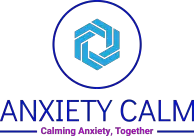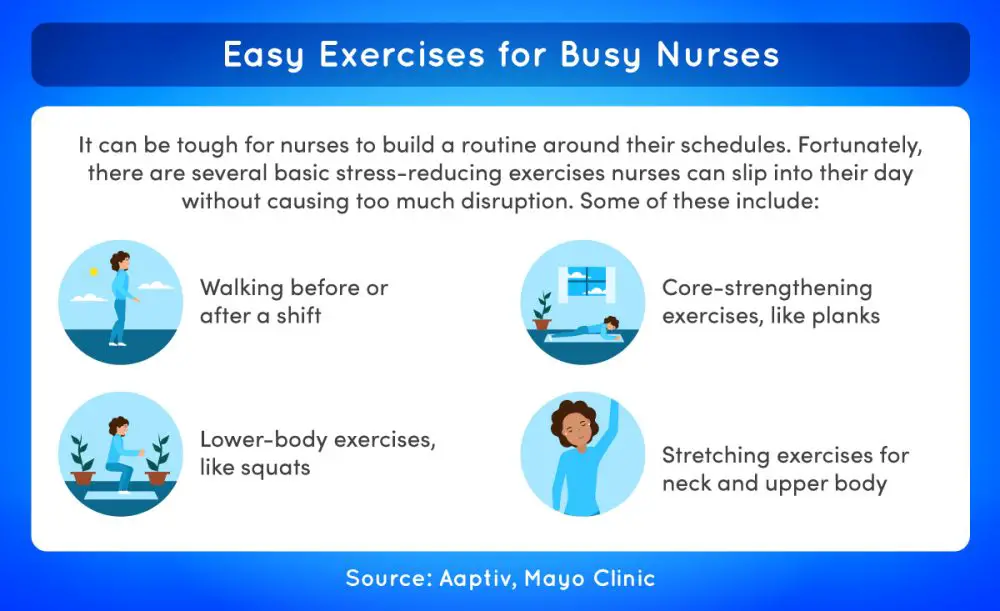In this week’s episode of the Anxiety Slayer Podcast, the hosts respond to questions from their Private Facebook Group about calming health anxiety. They discuss various reasons for feeling anxious about your health and offer tips on understanding and managing these anxieties. The episode also includes examples of using EFT Tapping to calm health anxiety and offers general support practices for calming anxiety and improving overall well-being. The hosts emphasize the importance of education, self-care, and positive thinking when dealing with health anxiety. For further support, they recommend their online course at the Anxiety Slayer Academy, which provides strategies for stopping health anxiety thoughts from spiraling out of control.
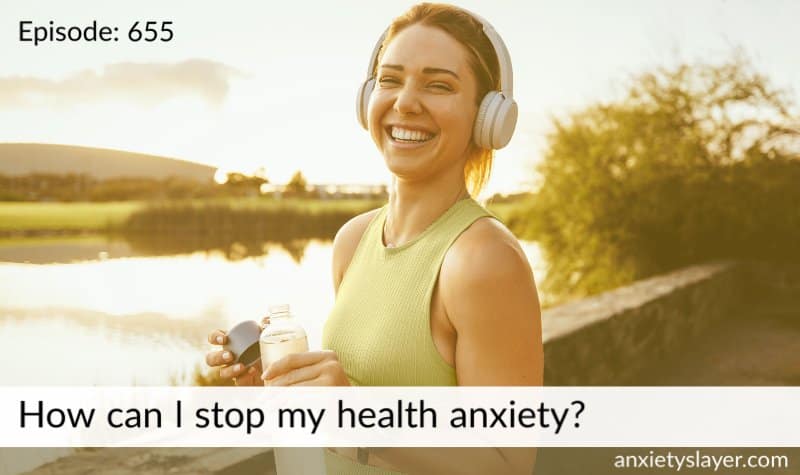
This image is property of images.squarespace-cdn.com.
Understanding Health Anxiety
Health anxiety can greatly impact your life, causing excessive worry and fear about your health. It is important to understand the triggers, physical symptoms, and anxiety patterns associated with health anxiety in order to effectively manage it. By gaining a deeper understanding of the psychological aspects, physical effects, and available support and treatment options, you can learn to overcome health anxiety and live a more fulfilling life.
Discovering triggers
Health anxiety can be triggered by a variety of factors. It is important to identify these triggers in order to better understand your anxiety and develop strategies to manage it. Triggers can include past bad experiences, a fear of medical professionals, dislike of scrutiny, general health concerns, or external influences such as news or drama. By recognizing what specifically provokes your health anxiety, you can take steps to address and alleviate those triggers.
Recognizing physical symptoms
Physical symptoms often accompany health anxiety, and it is crucial to be able to recognize them. Symptoms can include rapid heartbeat, shortness of breath, dizziness, muscle tension, headaches, gastrointestinal issues, and sleep disturbances. These physical symptoms can exacerbate anxiety and contribute to a cycle of worry. By learning to identify and manage these symptoms, you can regain control over your health anxiety.
Identifying anxiety patterns
Health anxiety often follows patterns, and understanding these patterns can help you develop effective coping mechanisms. Some individuals may experience heightened anxiety in response to specific triggers, while others may be more prone to general worry and fear about their health. By identifying when and why your anxiety tends to peak, you can work towards breaking the cycle and finding healthier ways to manage your worries.
Psychological Aspects of Health Anxiety
Health anxiety is deeply intertwined with our psychological well-being. By exploring the psychological aspects of health anxiety, we can gain a deeper insight into how it affects our brain and thoughts, and learn strategies for managing irrational fears.
Anxiety and the brain
Anxiety, including health anxiety, can have a significant impact on the brain. It can affect areas of the brain responsible for processing fear and emotions, leading to an increased sensitivity to potential health threats. Understanding these neurological processes can help you grasp why your anxiety may feel overwhelming and develop strategies for calming your brain’s response.
The role of thoughts in health anxiety
Our thoughts play a crucial role in health anxiety. Negative and intrusive thoughts can escalate our anxiety and contribute to a constant state of worry. By learning to recognize and challenge irrational thoughts, you can regain control over your thinking patterns and reduce the impact of health anxiety on your mental well-being.
Managing irrational fears
Health anxiety often involves irrational fears and beliefs about our health. These fears can be overwhelming and disrupt our daily lives. Cognitive Behavioral Therapy (CBT) and mindfulness-based therapies can be effective in helping individuals manage and challenge these irrational fears. By learning techniques to reframe thoughts and practicing mindfulness, you can develop a more balanced and realistic perspective on your health.
Physical Effects of Health Anxiety
Health anxiety not only impacts our mental well-being but also has physical effects on our bodies. Understanding these physical symptoms and their potential long-term consequences can highlight the importance of managing health anxiety effectively.
Physical symptoms
Health anxiety can manifest in various physical symptoms, such as increased heart rate, shortness of breath, headaches, and digestive issues. These symptoms can be distressing and exacerbate anxiety, creating a cycle of fear and worry. Recognizing and addressing these physical symptoms can help break the cycle and reduce the impact of health anxiety on your overall well-being.
Impact on daily life
Health anxiety can significantly disrupt daily life. Constant worry and fear about one’s health can lead to avoidance behaviors, social withdrawal, and difficulty concentrating on daily tasks. It may also impact relationships and overall quality of life. By addressing health anxiety, you can regain control over your daily life and engage in activities that bring you joy and fulfillment.
Long-term effects of chronic anxiety
Chronic health anxiety can have long-term consequences on both physical and mental health. Prolonged stress and worry can weaken the immune system, contribute to sleep disturbances, and increase the risk of developing other mental health conditions. By managing health anxiety early on, you can prevent potential long-term effects and prioritize your overall well-being.
Emotional Support for Health Anxiety
Emotional support plays a vital role in managing health anxiety. Having a support network and access to professional help can provide validation, reassurance, and guidance throughout your journey. Understanding the importance of emotional support and the available resources can empower you to seek the help you need.
Importance of emotional support
Having a support system can greatly alleviate the distress associated with health anxiety. Friends, family members, or support groups who can empathize and provide a listening ear can offer comfort and understanding. Sharing your experiences and concerns with others can also help normalize your feelings and reduce feelings of isolation.
Finding a support network
Finding a support network can be crucial in managing health anxiety. This can involve joining support groups, either online or in person, where you can connect with individuals who have similar experiences. Additionally, reaching out to loved ones and opening up about your struggles can foster a strong support system. Remember, you are not alone in your journey, and seeking support is a sign of strength.
Accessing professional help
In some cases, professional help may be necessary to effectively manage health anxiety. Psychotherapy, such as Cognitive Behavioral Therapy (CBT), can provide you with the tools and strategies to navigate your anxiety. Therapists can also help you challenge negative thought patterns, develop coping mechanisms, and provide guidance in overcoming specific triggers. Seeking professional help is a valuable step towards finding relief and long-term healing.
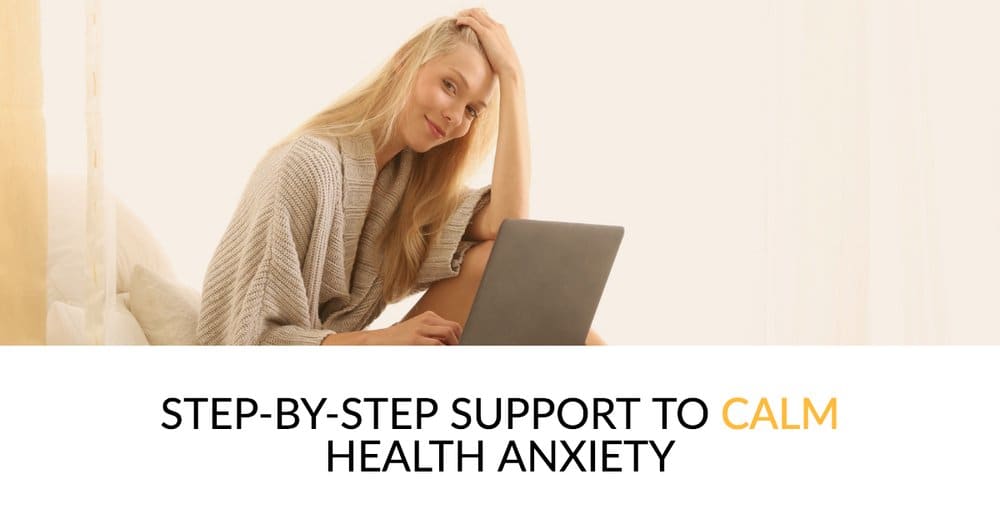
This image is property of images.squarespace-cdn.com.
Self-Care Strategies
Taking care of yourself is crucial when managing health anxiety. Implementing a daily self-care routine, engaging in mindful activities for relief, and prioritizing physical activity and nutrition can all contribute to reducing anxiety and promoting overall well-being.
Implementing a daily self-care routine
Creating a daily self-care routine is essential in managing health anxiety. This can involve setting aside time for activities that bring you joy and relaxation, such as practicing mindfulness, engaging in hobbies, journaling, or taking baths. By prioritizing self-care, you can cultivate a sense of calm and resiliency in the face of health worries.
Mindful activities for relief
Mindfulness practices can be incredibly helpful in managing health anxiety. Incorporating activities such as deep breathing exercises, meditation, and yoga into your routine can promote relaxation, reduce stress, and enhance overall well-being. These practices can also help you cultivate a greater sense of self-awareness and prevent spiraling into anxious thoughts.
Significance of physical activity and nutrition
Physical activity and nutrition play a significant role in managing health anxiety. Regular exercise can help reduce anxiety symptoms by releasing endorphins and improving overall mood. Additionally, adopting a balanced diet that includes nutrient-rich foods can support optimal brain function and overall well-being. Taking care of your physical health can have a positive impact on your mental health and help alleviate health anxiety.
Therapy Options for Health Anxiety
Therapy is a valuable tool in managing health anxiety. Cognitive Behavioral Therapy (CBT), mindfulness-based therapies, and holistic treatment options can provide you with the necessary support and strategies to overcome health anxiety and build resilience.
Cognitive Behavioral Therapy (CBT)
Cognitive Behavioral Therapy (CBT) is a widely recognized therapy approach for anxiety disorders, including health anxiety. CBT focuses on identifying and challenging negative thought patterns and beliefs that contribute to anxiety. It aims to replace irrational thoughts and behaviors with healthier and more realistic ones. By working with a trained therapist, you can learn CBT techniques to address health anxiety and develop coping mechanisms for managing your worries.
Mindfulness-based therapies
Mindfulness-based therapies, such as Mindfulness-Based Stress Reduction (MBSR) and Acceptance and Commitment Therapy (ACT), can be effective in managing health anxiety. These therapies focus on cultivating present-moment awareness, acceptance of thoughts and feelings, and a non-judgmental attitude. By incorporating mindfulness practices into your daily life, you can develop a greater capacity to cope with health anxiety and reduce its impact on your overall well-being.
Holistic treatment options
In addition to traditional therapies, holistic treatment options can complement and enhance the management of health anxiety. These may include modalities such as acupuncture, massage therapy, herbal remedies, and alternative healing practices. Integrating holistic approaches into your treatment plan can provide additional support and help restore balance to your mind and body.
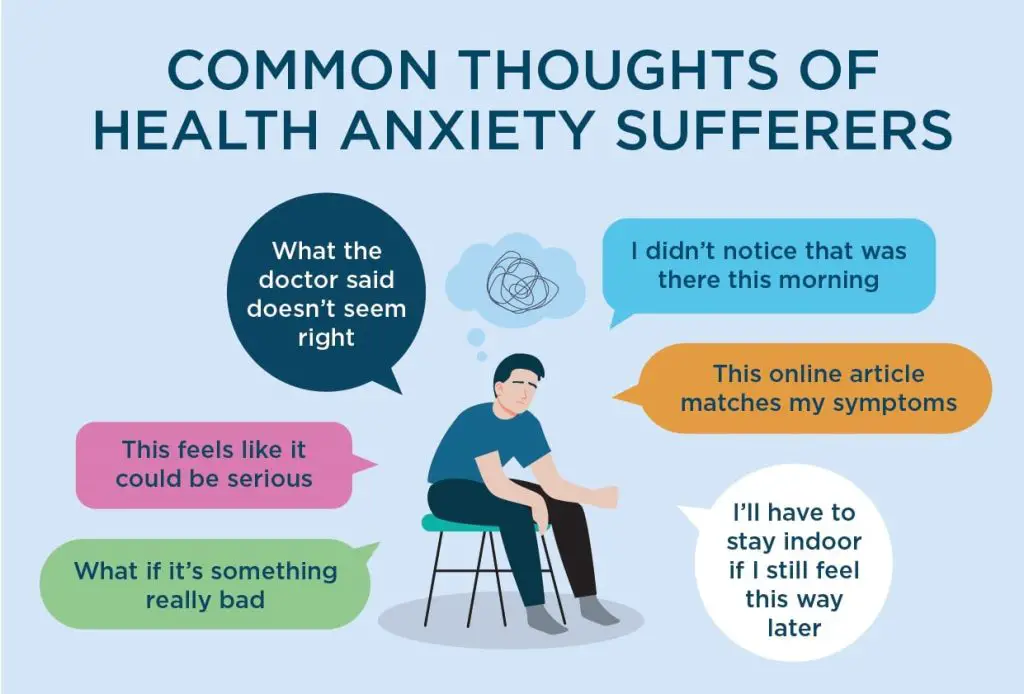
This image is property of www.priorygroup.com.
Use of Medication for Health Anxiety
In some cases, medication may be recommended to help manage health anxiety. It is important to weigh the pros and cons of medication and make an informed decision based on your individual circumstances and needs.
Commonly used anxiety medications
Selective serotonin reuptake inhibitors (SSRIs) and benzodiazepines are commonly prescribed medications for anxiety disorders. SSRIs work by increasing serotonin levels in the brain, while benzodiazepines provide short-term relief by enhancing the effects of a neurotransmitter called gamma-aminobutyric acid (GABA). These medications can help reduce anxiety symptoms and provide temporary relief for individuals with health anxiety.
Weighing the pros and cons of medication
While medication can be beneficial in managing health anxiety, it is essential to consider the potential pros and cons. Medication may provide short-term relief, but it is not a cure for underlying anxiety. Furthermore, medication side effects and the risk of dependence or withdrawal symptoms should be taken into account. It is crucial to discuss the benefits and risks with a healthcare professional to make an informed decision about medication.
Alternative treatments
In addition to medication, alternative treatments can be explored as part of a holistic approach to managing health anxiety. These may include herbal remedies, supplements, acupuncture, or other alternative healing practices. It is important to consult with a healthcare professional or a qualified alternative medicine practitioner to determine the suitability and potential benefits of alternative treatments in your specific case.
Lifestyle Changes for Health Anxiety
Making lifestyle changes can significantly improve the management of health anxiety. Building a healthier lifestyle, focusing on the effects of diet and exercise, and prioritizing good sleep hygiene can all contribute to reducing anxiety and promoting overall well-being.
Building a healthier lifestyle
Adopting a healthier lifestyle is a proactive step in managing health anxiety. This can involve making conscious choices to prioritize self-care, engage in activities that bring you joy, and create a balance between work and leisure. By building a healthier lifestyle, you can create a solid foundation for managing health anxiety and enhancing your overall quality of life.
Effects of diet and exercise
Both diet and exercise have a direct impact on mental health. Consuming a balanced diet that includes nutrient-rich foods can support brain health and reduce inflammation, which is associated with anxiety. Regular exercise releases endorphins, improves mood, and helps reduce anxiety symptoms. Integrating healthy eating and regular physical activity into your routine can significantly contribute to managing health anxiety.
Importance of good sleep hygiene
Quality sleep is essential for overall well-being and mental health. Poor sleep can worsen anxiety symptoms and contribute to heightened health worries. Practicing good sleep hygiene, such as establishing a consistent sleep schedule, creating a relaxing bedtime routine, and optimizing your sleep environment, can promote restful sleep and alleviate the impact of health anxiety.

This image is property of adaa.org.
Stress Management Techniques
Managing stress is a vital component of managing health anxiety. Incorporating relaxation techniques, practicing breathing exercises, and embracing mindfulness meditation can help calm your mind and reduce anxiety.
Use of relaxation techniques
Relaxation techniques, such as progressive muscle relaxation, guided imagery, and visualization, can induce a state of relaxation and reduce anxiety. These techniques involve consciously focusing on your breath, releasing tension from your muscles, and visualizing calming scenes. By incorporating relaxation techniques into your routine, you can activate the body’s natural relaxation response and alleviate anxiety symptoms.
Breathing exercises
Breathing exercises are a simple yet powerful tool in managing anxiety. Deep breathing, diaphragmatic breathing, and box breathing techniques can calm the nervous system, slow down the heart rate, and promote relaxation. By practicing these breathing exercises regularly, you can develop a greater sense of control over your anxiety and enhance your overall well-being.
Importance of mindfulness meditation
Mindfulness meditation involves cultivating present-moment awareness and accepting thoughts and feelings without judgment. By practicing mindfulness meditation, you can observe your health worries without becoming consumed by them. Regular meditation can help you develop a more balanced perspective, reduce anxiety, and enhance overall mental well-being.
Resiliency and Health Anxiety
Building resilience is essential for effectively managing health anxiety. By developing resiliency skills, adapting to life changes, and recognizing the benefits of resilience in anxiety management, you can cultivate a stronger sense of self and face health worries with greater confidence.
Building resiliency skills
Resilience is the ability to bounce back from adversity and navigate life’s challenges. Building resiliency skills can support your mental well-being and promote a healthier response to health anxiety. These skills may include fostering positive thinking patterns, practicing self-compassion, developing problem-solving skills, and cultivating a strong support network.
Adapting to life changes
Life changes can often trigger health anxiety. It is important to recognize that change is inevitable, and adapting to new circumstances is an essential part of personal growth. By developing flexibility and practicing acceptance, you can navigate life changes with greater ease and reduce the impact of health anxiety on your overall well-being.
Benefits of resiliency in anxiety management
Resilience is a valuable asset in managing health anxiety. It allows you to cope with uncertainty, bounce back from setbacks, and maintain a sense of hope and optimism. By cultivating resiliency, you can transform health anxiety into an opportunity for personal growth and develop the strength and confidence to face any health concerns that may arise.
In conclusion, understanding health anxiety is crucial for effective management. By exploring triggers, recognizing physical symptoms, and identifying anxiety patterns, you can develop strategies to cope with health anxiety. Addressing the psychological aspects, physical effects, and accessing emotional support and therapy options can provide valuable tools for managing health anxiety. Furthermore, incorporating self-care strategies, considering medication and lifestyle changes, and implementing stress management techniques can significantly enhance well-being in the face of health anxiety. By building resilience and recognizing the benefits of resiliency in anxiety management, you can cultivate a sense of strength and navigate health worries with confidence. Remember, seeking help and support are signs of strength, and you deserve to live a fulfilling life free from the constraints of health anxiety.
